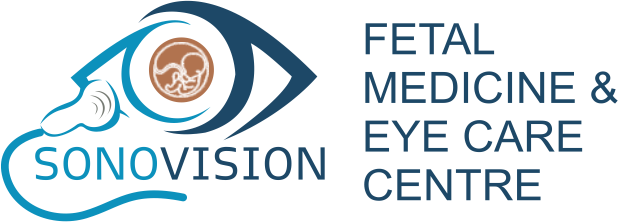What is prenatal genetic testing?
Prenatal genetic testing gives parents information about genetic disorders or birth abnormalities the fetus may have.
A person’s chromosomes or genes cause genetic disorders. A gene is part of your body’s cells that stores instructions for how your body works. A chromosome holds your genes. Congenital disorders are present at birth, and healthcare providers can diagnose some of these conditions before birth.
There are two different kinds of tests: screening tests and diagnostic tests.
SCREENING TEST
Screening tests don’t diagnose genetic conditions, and an abnormal result doesn’t mean the fetus has a condition. It means there’s a higher risk for a genetic disorder. Your healthcare provider can help interpret results from genetic screening tests and explain the next steps. In some cases, they may recommend diagnostic testing.
Some examples of prenatal genetic screening tests are:
- Carrier screening
- Screening for ABNORMAL CHROMOSOMAL NUMBER – Down’s syndrome, Turners syndrome . Types of tests includes:
- Cell-free fetal DNA screening: This is popularly known as non-invasive prenatal testing (NIPT).
- Serum screening: This type of test is also done on your blood sample.
- Screening for STRUCTURAL ABNORMALITIES: During pregnancy, ultrasound and blood tests can help determine the fetus’s risk for physical abnormalities and assess whether or not they may be due to genetic abnormalities. Tests includes: •Nuchal Translucency scan ( NT scan ) •AFP screening. •Quad screen • Fetal anomaly scan .
Remember, prenatal screenings tell you a condition might be present. It doesn’t diagnose a condition.

DIAGNOSTIC TESTS
Diagnostic prenatal tests can confirm if the fetus has a genetic condition. These tests take cells from the amniotic fluid or placenta and test them for specific disorders. Diagnostic testing is only performed when a screening test is abnormal or if you’re at high risk for having a baby with a genetic condition.
The most common diagnostic tests are amniocentesis and chorionic villus sampling (CVS).
AMNIOCENTESIS
Amniocentesis is a prenatal test that can diagnose genetic disorders (such as Down syndrome and spina bifida) and other health issues in a fetus. A provider uses a needle to remove a small amount of amniotic fluid from inside your uterus, and then a lab tests the sample for specific conditions.
Procedure: Your provider inserts a needle through your skin into your uterus to remove a sample of amniotic fluid from the amniotic sac. Amniocentesis happens between 16 and 20 weeks of pregnancy.
CHORIONIC VILLUS SAMPLING
Chorionic villus sampling, or CVS testing, is a type of genetic test during pregnancy. It can detect if the fetus has certain health conditions. CVS test results are very accurate.
Procedure: Your provider inserts a needle into your uterus to remove a small sample of cells from the placenta. The provider will determine if it’s safer to place the needle through your abdomen or your vagina. CVS occurs around 11 to 13 weeks of pregnancy.
The provider then sends the samples to the lab for analysis. The lab can perform several types of diagnostic tests, including fluorescence in situ hybridization (FISH), standard karyotyping, and microarray or special panels.
CVS and amniocentesis, another prenatal test, can help you make important healthcare decisions. If needed, your healthcare provider helps you weigh the next steps.
WHO SHOULD GET GENETIC TESTING?
The decision to get prenatal genetic testing is a personal choice.
Some of the reasons families will choose diagnostic genetic testing during pregnancy are:
- Irregular result of a genetic screening test.
- Family or personal history of genetic conditions.
- Pregnancy over age 35.
- History of miscarriage or stillbirth.
Genetic screening tests measure risk only. They don’t tell you for sure if the fetus has a genetic condition. A positive result means the fetus is at a higher risk for that disorder than the general population. A negative result means the fetus is at a lower risk of having that disorder than the general population.
WHAT IS GENETIC COUNSELING?
Genetic counseling gives you information about how genetic conditions might affect you or your family. The genetic counselor or other healthcare professional will collect your personal and family health history. They can use this information to determine how likely it is that you or your family member has a genetic condition. Based on this information, the genetic counselor can help you decide whether a genetic test might be right for you or your relative.
